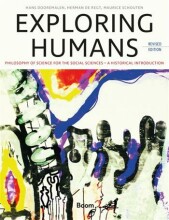The impact of Descartes and the British empiricists on philosophical thought regarding rationality and empiricism - Descartes
8 important questions on The impact of Descartes and the British empiricists on philosophical thought regarding rationality and empiricism - Descartes
When did Descartes live?
What was Descartes view on the foundation of our knowledge?
- Descartes (1596-1650) believed that the foundation of knowledge lies in absolutely certain statements.
- To be obtained trough reason.
- If senses deceive us sometimes, why not always?
- He doubted everything "Cogito Ergo Sum."
- "I think, therefore I am."
- God exists, because if our imperfect minds can image a perfect divine being as God, he should exist.
- Believed God placed som innate ideas in us.
- God will not deceive us, hence we can assume the physical world really exists.
- Came to this knowledge by REASON.
Why didn't Descartes trust the information of his senses?
- Higher grades + faster learning
- Never study anything twice
- 100% sure, 100% understanding
Who said the following quote and what does it mean: "Cogito Ergo Sum" ?
Although doubting everything, Descartes believed in God.
Can you explain?
Because God won't deceive us, we can assume that the physical world really exists.
What is George Berkeley's view on the foundation of knowledge?
- George Berkeley (1685-1753) all properties are only known through the ideas that senses produce in us.
- Rejection of Locke's distinction between primary and secondary properties.
- There too we find perceptual relativity.
- Hence his idealism: to be is to be perceived.
What was David Hume's vision on the foundation of knowledge?
- David Hume (1711-1776) believed, like Berkeley, that all knowledge is derived from ideas that senses produce in us.
- If all science is based on representation of our mind, we should understand the human mind to move forward with science.
- Two types of perceptions:
- Impressions:
- Direct experiences that are perceived by our senses.
- Ideas:
- Vague copies of impressions that stay behind in our minds, when the source of the impression has gone away.
- Concept of the Copy Principle:
- All ideas are (vague) copies of initial impressions.
- Use the Copy Principle in reverse to judge the meaningfulness of ideas.
- Who were the four British philosophers of the 18th/18th century that said something about the foundation of knowledge?
- Can they be seen as Rationalists or Empiricists?
- What is their main concept?
- René Descartes (1596-1650) Rationalists.
- Perceptions are untrustworthy, knowledge obtained through reason.
- Cogito Ergo Sum.
- John Locke (1632-1704), Empiricist.
- Tabula Rasa.
- Primary and secondary properties of sensations.
- George Berkeley (1685-1753), Empiricist.
- All sensations we perceive are relative.
- Idealism: to be is to be perceived.
- David Hume (1711-1776), Empiricist.
- Perceptions categorized in impressions and ideas.
- Copy principle, all ideas are (vague) copies of impressions.
The question on the page originate from the summary of the following study material:
- A unique study and practice tool
- Never study anything twice again
- Get the grades you hope for
- 100% sure, 100% understanding
































